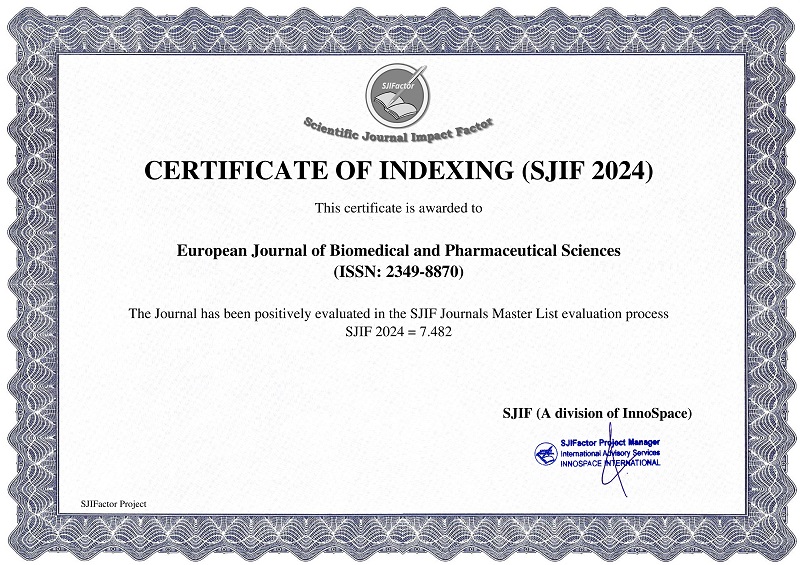ANTIPYRETIC ACTIVITY OF UNRIPE PULP EXTRACTS OF CUCUMIS SATIVUS
Dr. Hannah Elizabeth S.*, Dr. Channamma G. M., Dr. D. Gnanasekaran, Joel Durairaj G., Dr. Reshma Karkera and Dr. Shyam Kumar B.
ABSTRACT
The main objective of the study is to evaluate antipyretic activity of aqueous, ethanol and ethyl acetate extracts of unripe pulp of Cucumis sativus, family Cucurbitaceae in experimental animals. Cucumis sativus commonly known as wild cucumber. The fruit of which is mainly consumed as a vegetable and non-toxic natural therapeutic agent used in various diseases. The preliminary phytochemicals investigations of extracts of Cucumis sativus unripe pulp was performed for the identification of carbohydrates, proteins, alkaloids, saponins, tannins, glycosides and triterpenes. Antipyretic effect of extracts of unripe pulp of the Cucumis sativus was investigated by milk induced Pyrexia method. Intraperitoneal administration of boiled milk at a dose 0.5 ml/kg body weight in albino rabbit leads to Pyrexia. In antipyretic activity oral administration of all the extracts at a dose 250, 500 mg/kg body weight were shown significantly reduce the elevated body temperature of rabbits which was compared with standard Paracetamol and control. The results shown that aqueous and ethanol extracts at 200, 500 mg/kg body weight shown significant (p<0.05) when compared to control. Aqueous extract is more significant compared to other all extracts. The interpretation of the result was done after subjecting the data obtained from various studies to appropriate statistical analysis which included one-way ANOVA followed by Dunnett’s Multiple Comparison Test.
Keywords: Cucumis sativus, Aqueous, Ethanol, Ethyl acetate, Rabbit, and Pyrexia.
[Full Text Article]
[Download Certificate]


 Impact Factor : 8.181
Impact Factor : 8.181 






